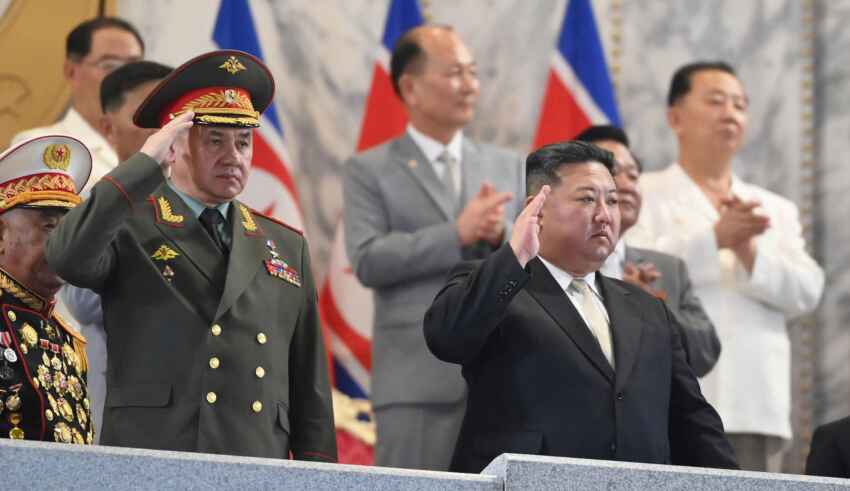
Leader Kim Jong-Un’s meeting with President Vladimir Putin on 12 September has raised many questions about whether the two countries plan to extend their cooperation to other issues, such as advanced technology for satellites, nuclear-powered submarines and ballistic missiles. It is well known that North Korea is suffering from a serious food crisis among its citizens, while Russia is seeking weapons to support its offensive against Ukraine, so we can draw the conclusion that their relationship is aimed at granting mutual benefits.
However, this has many benefits for them not only in military terms, but also in economic and diplomatic terms. They have openly spoken of their mutual respect while quietly circumventing the implementation of UN resolutions on sanctions for both countries. These two countries are now known for initiating military cooperation, standing up to hegemonic powers to defend their sovereignty and security. Military cooperation also involves a big issue these days, which is the development of its space and satellite programme, where India is known for making great strides. Especially for North Korea, this has been high on their agenda this year, with a couple of failures along the way.
John Kirby, spokesman for the White House National Security Council, has expressed concern – on behalf of the US – about potential defence cooperation between Russia and North Korea, especially on the issue just discussed. Moreover, their weapons development also has potential for the future of other world powers. Short-range ballistic missiles and rocket engineering are at the centre of all concerns, especially for South Korea, which has been held hostage by North Korea for many decades. For them, a good direction this cooperation could take is to emphasise contributing to peace and prosperity on the Korean peninsula and respecting UN Security Council resolutions; of course, this example also applies to the war in Ukraine, where almost all nations are fighting for its end.
China’s silence at this meeting has also been crucial, as it has sided with non-confrontational intrusiveness while managing the situation on its own terms. The emergence of an opposition coalition in Northeast Asia deepens Korean regional tensions on the mainland and thus uncertainty over the outcome is on the table.
In conclusion, we can see that the summit between North Korea and Russia regarding military terms is shining in the spotlight. It is unclear how the US and its regional allies will respond, but unfortunately the war in Ukraine is, over time, worsening hopes in Europe and Western countries, especially to deter Russia.
References
Cha, V & Kim, E. (2023, September 6th). A renewed axis: growing military cooperation between North Korea and Russia. Beyond Parallel CSIS. Retrieved from:
Ching, N. (2023, September 13th). Russia-North Korea military cooperation concerns the US. VOA News. Retrieved from:
Snyder, S. (2023, September 7th). The perils of a renowned North Korea-Russia relationship. Council of Foreign Relations. Retrieved from:
https://www.cfr.org/in-brief/perils-renewed-north-korea-russia-relationship
By The European Institute for International Law and International Relations.














